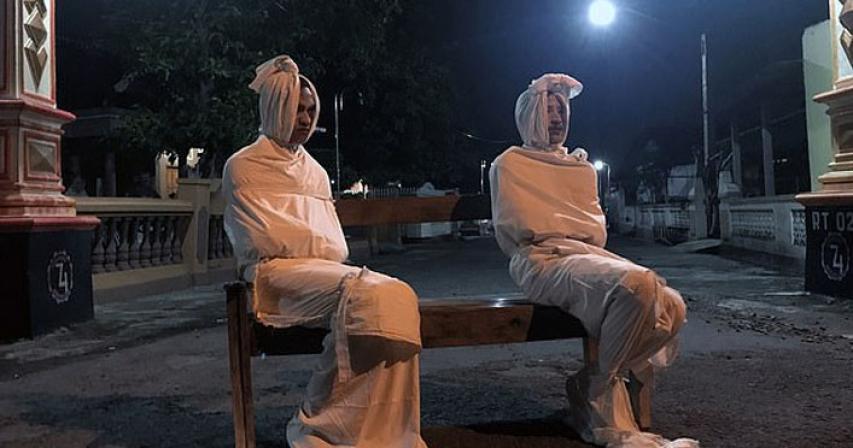Indonesians dress up as 'ghosts' to patrol streets, scare people into staying home
- 4 years ago

A village youth group in Indonesia are dressing up as ghosts to scare people into staying indoors amid the coronavirus crisis.
Villagers in Kepuh on Java island are wearing white and patrolling the streets, jumping out at unsuspecting passersby to encourage social distancing.
They hope that age-old superstition will keep people indoors.
Indonesia has 4,557 coronavirus cases and 399 have died from the bug in the worst-hit Asian country outside of China.
President Joko Widodo has resisted a national lockdown to curb the spread of the virus, instead urging people to practise social distancing and good hygiene.
Anjar Pancaningtyas, head of a village youth group that coordinated with the police on the unconventional initiative, said: 'We wanted to be different and create a deterrent effect because pocong are spooky and scary.'
Known as 'pocong', the ghostly figures are typically wrapped in white shrouds with powdered faces and kohl-rimmed eyes.
In Indonesian folklore they represent the trapped souls of the dead.
But when they first started appearing this month they had the opposite effect.
Instead of keeping people in they bought them out to catch a glimpse of the apparitions.
The organisers have since changed tack, launching surprise pocong patrols, with village volunteers playing the part of the ghosts.
'Residents still lack awareness about how to curb the spread of COVID-19 disease,' said village head Priyadi.
He added: 'They want to live like normal so it is very difficult for them to follow the instruction to stay at home.'
Researchers at the University of Indonesia estimate there could be 140,000 deaths and 1.5 million cases by May without tougher curbs on movement.
'Since the pocong appeared, parents and children have not left their homes,' said resident Karno Supadmo, 'And people will not gather or stay on the streets after evening prayers.'
Source: Daily Mail
Comments